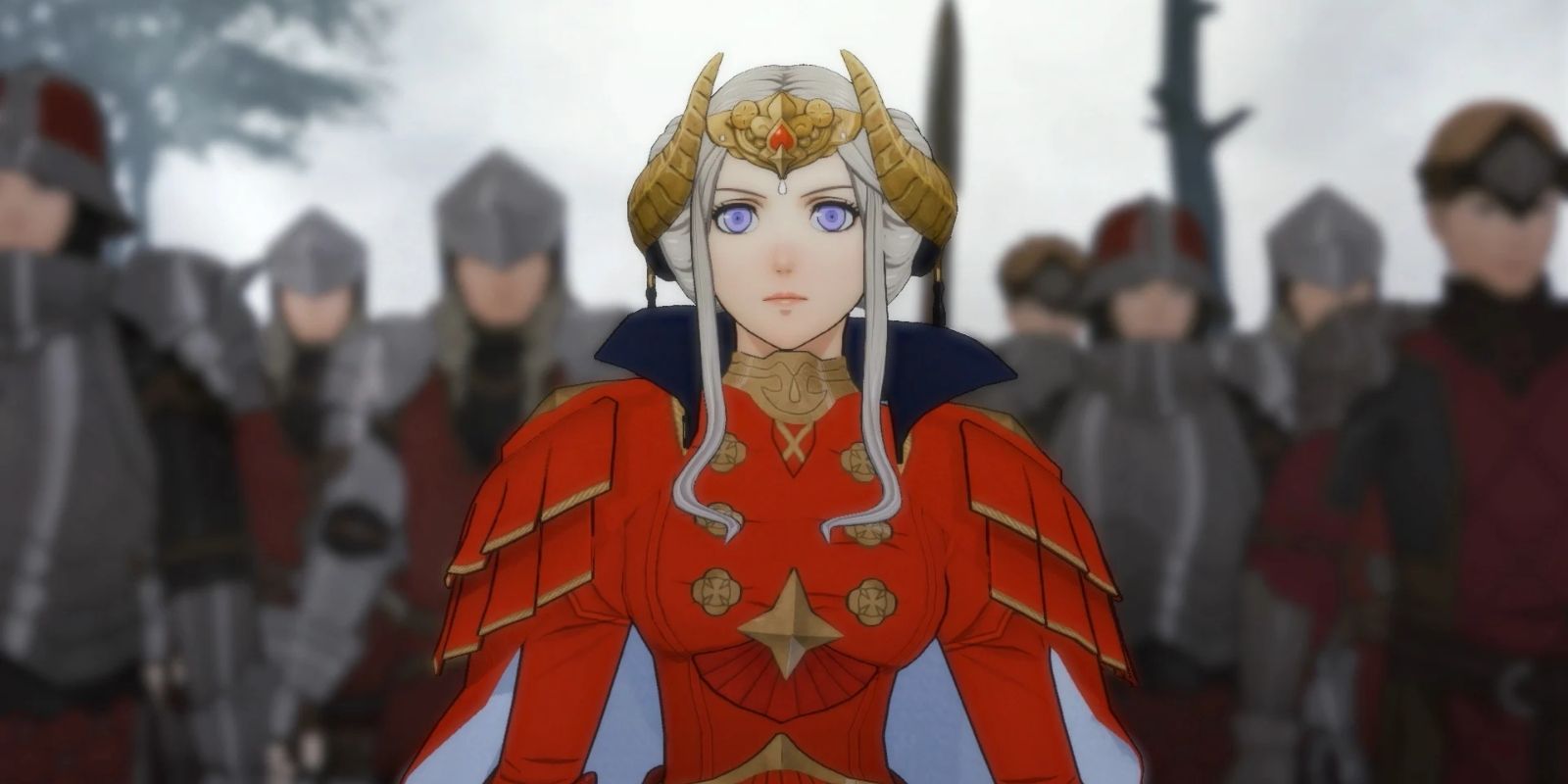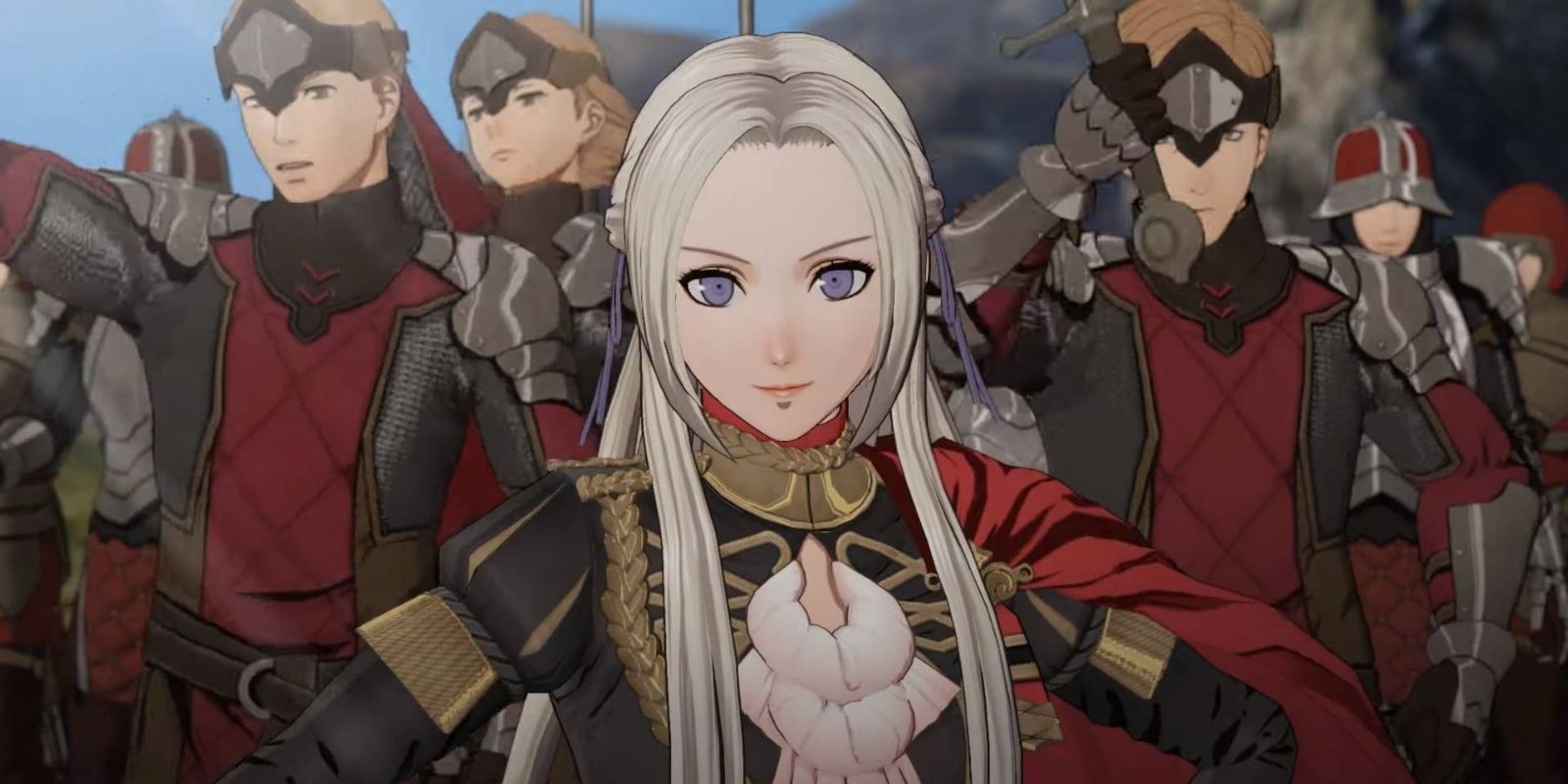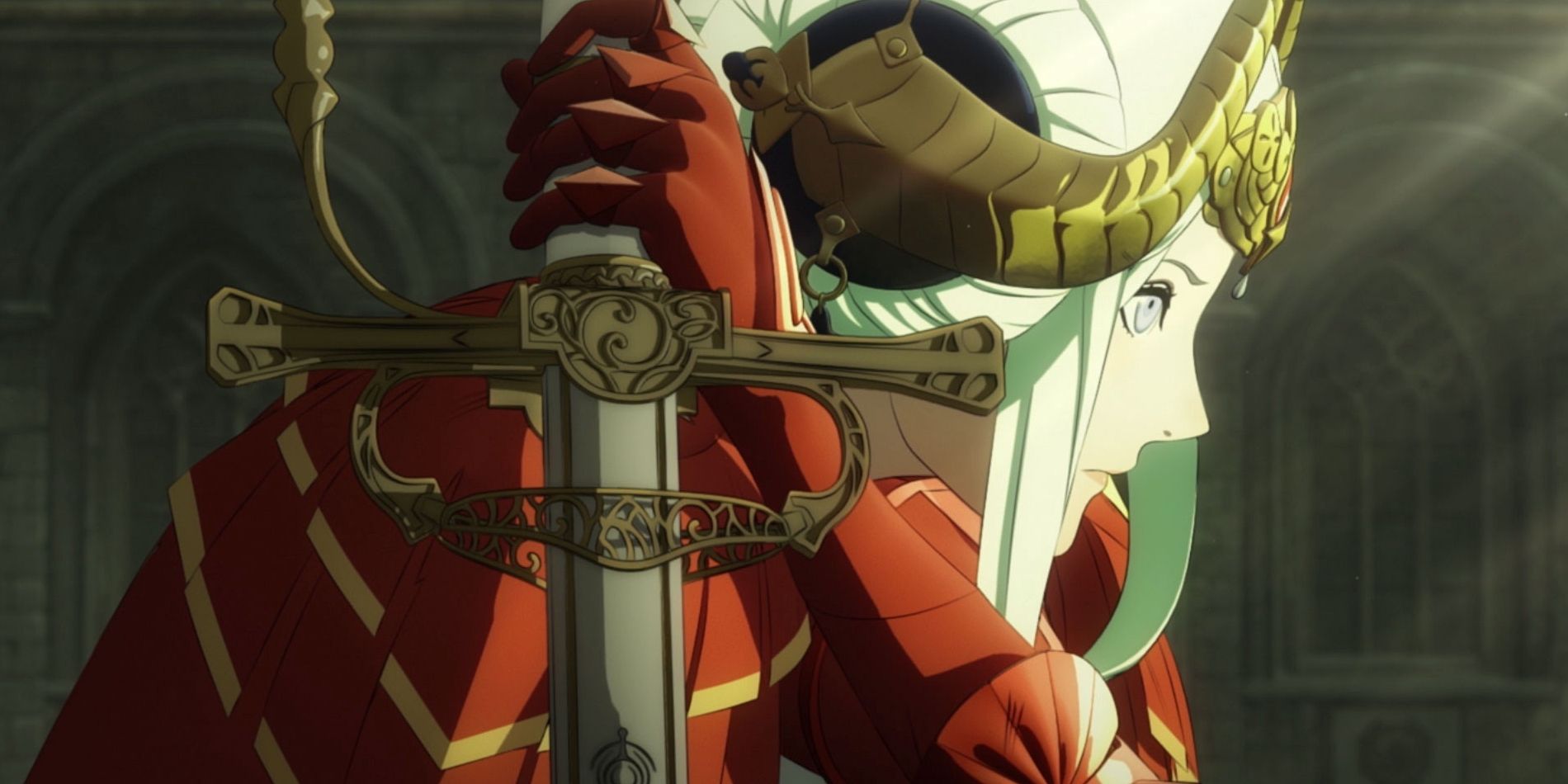
Fire Emblem: Three Houses has been the series' most successful entry, in no small part due to its cast of excellent characters. One of the most prominent is Edelgard, heir to the Adrestian Empire and arguably the game's most important figure. Her vision of a better world is what truly sets the plot in motion, leading to its primary conflict.
Edelgard believes the continent of Fódlan, on which Three Houses is set, is stagnating due to its feudalistic class structure. Accusing Archbishop Rhea of fostering an abusive aristocracy, she rebels against the ruling Church of Seiros to replace this archaic system with a fairer one. Ironically, however, this decision condemns her to walk the same path as her most hated foe.

To understand Edelgard, one must first understand her world and its influences. Three Houses takes a lot of inspiration from European history and politics, and its story is set in an age where the power of crowns and churches are being challenged. This creates parallels with real-world events, like the English Civil War and French Revolution. Those revolts, and Edelgard's, refuted the divine right of kings. Rulers in reality and Fódlan were ostensibly ordained by gods, a claim those who rebelled rejected and sought to replace with more egalitarian systems.
Even by the standards of that European influence, Fódlan is a deeply conservative setting. Society and technology have been at the medieval level for millennia, and the church's foreign policy is aggressively isolationist. Edelgard argues that this creates a world whose leaders did nothing to earn their privilege, and fights to restructure it so the deserving may rule instead. Fittingly for the game's themes, this is the same critique of feudalism that motivated Europe's revolutions.
Much like their leaders, however, Edelgard falls into the trap of not having a clear vision of what should substitute the world she seeks to destroy. For someone so devoted to meritocratic ideals, she never clearly defines what "merit" means. She claims her system would reward the deserving, but the details of who they are and how their worth is determined amounts to little beyond "Not aristocrats". This leaves her policies vulnerable to corruption by successors who do not share her ideals.

Even if Edelgard abolishes the nobility of her era, there is no way to ensure new houses or restoration movements do not rise after her death. In fact, looking back at the game's influences, there is a strong precedent for such outcomes. The English Civil War ended with the king's execution, yet his son was crowned a few years later. The French Revolution was supposed to end the power of the monarchy, yet its democratic ideals couldn't prevent Napoleon's rise. Based on the evidence presented in-game, there is no reason why Edelgard's Fódlan should be any different, especially not when she achieves so much by force.
Many Adrestrian characters express a desire to reunite the land. However, the people of the nations that broke from it have had centuries to develop their own cultures and practices, many of which are incompatible with this nationalism. Leaders like Dimitri were so beloved that their people chose death over submission to the Empire. The sheer number of rebellions throughout the game's timeline further confirms this, indicating that future emperors will inevitably face a revolution, and the cycle of violence will start all over again.
None of this is helped by Edelgard's attitude towards power. Throughout the game, she expresses the notion that the strong must guide the weak. So ingrained is this ideal that she is willing to sacrifice anything to uphold it. However, this mindset makes it abundantly clear that she is doomed to repeat Rhea's failures. She may be ending hereditary privilege but she isn't replacing it with democracy, she is simply trading one class of elites for one of her own design. As such, even if her system miraculously evades corruption, it will in practice be a little different from the one that already exists.
Edelgard is a fantastic character, one of the most interesting that Fire Emblem has produced, but her story is tragically ironic. Despite all of her efforts to build the opposite of Rhea's world, she is simply too similar to avoid falling into the same trap. Both women were betrayed by the world and tried to fix it through force, but their inability to understand the follies and complexities of people doom their efforts to failure. This makes her ending perhaps the series' most poetically bittersweet moment. If the Flame Emperor wins, Fódlan will be ashes.
0 Comments